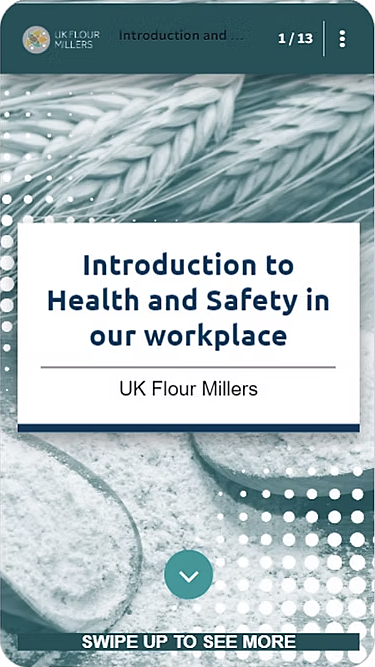Distance Learning Programme

Each year, UK Flour Millers runs the Distance Learning Programme (DLP) with seven unique modules that provide the practical skills and knowledge need for flour millers, employees working in flour mills, and other industry players. With courses studied by hundreds of students around the world, the DLP aims to boost their careers, allowing businesses to benefit from their new expertise.
The modules cover every aspect of flour milling from wheat to flour and milling to management. With our modern training programme, each DLP module is split up into bite-sized chunks (micro learning—learn more below) to help learners expand their understanding of the industry while doing so in a timeframe that works best for them.
The modules may be studied in any order – between one and three modules in any given year at approximately 20 hours minimum study time per module – and in any combination. Students are not required to have previous qualifications to enrol in a module. This makes the Distance Learning Programme ideal for employees at all levels, whether they just started working in the mill or have been there for decades.
Students receive additional support throughout their studies. Tutors and mentors are allocated to each DLP participant to ensure students get the most out of the programme. We also encourage students’ workplaces to support their learning journey to maximise the rewards of DLP studies.
To learn more about the Distance Learning Programme, please visit our specialised Training Website and use our checklist below to see how the DLP is right for you and your organisation.

Micro learning
Aimed at Distance Learning Programme students, our micro learning platform is designed to provide quick and interactive content that can be accessed anywhere via smartphones and other portable devices.
Other perks include engaging videos, infographics, and “rapid brain boosters” to enhance the educational experience. The materials available in multiple languages and are structured to allow students to learn at their own pace, whether it's during your break, pre-work, after work, or even on the bus ride to and from work. Our micro-learning segments take only 10-15 minutes, making it easy for you to fit training into your busy schedule.
Checklist
If you are considering enrolling your employee(s) onto one or more of the UK Flour Millers' Distance Learning Programme courses you may wish to consult our handy checklist to decide whether it is right for your organisation.
Spread over the study year, the cost of each module is around £12 per week.
Feedback has shown that by sitting the distance learning programme, students increase their knowledge and understanding which helps them do their job more competently, thereby saving their employer both time and money.
Feedback has shown that by sitting the distance learning programme, students increase their knowledge and understanding which helps them do their job more competently, thereby saving their employer both time and money.
Each and every one of our modules is written with the aim of increasing our students’ understanding of the milling process. They are not going to get this level of industry-specific training anywhere else.
The distance learning programme offers a flexible approach to learning. The modules can be studied in any order and in any combination, thereby allowing you to select the modules most relevant to your needs.
We allocate all students a tutor for each module that they are studying. The tutor has a depth of specialist knowledge and will provide support and advice by way of feedback and marking of coursework assignments.
The subject content is reviewed each year, and the course textbooks are updated on a rotation basis. Each one is reviewed every six year – earlier if the need arises.
The nabim distance learning programme is written for and by millers to train and support the next generation of flour millers.
Studying can update a miller’s understanding, provide fresh motivation and ignite their enthusiasm for milling.
Studying the flour milling distance learning programme increases knowledge and skills and therefore enhances the career prospects of the alumni.
